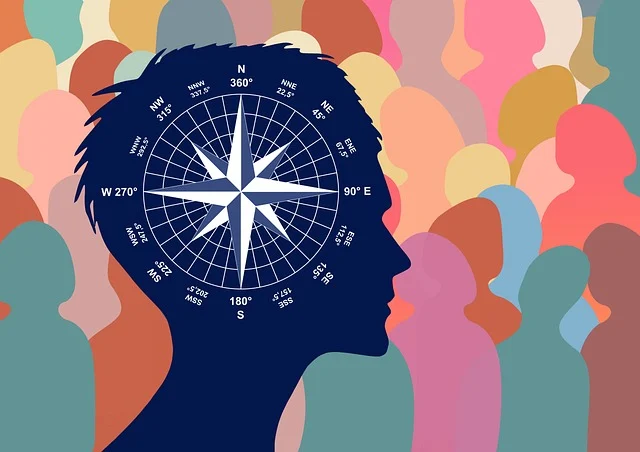Table of Contents

Introduction: The Road to Emotional Resilience through Self-Compassion
Self–Compassion, the art of treating oneself with the same empathy and understanding that one would provide to a cherished friend during moments of hardship, is often undervalued and misunderstood. It’s easy to mistake self-compassion for self-indulgence or self-centeredness, but in reality, it is the bedrock of emotional resilience, mental health, and the capacity to genuinely love and support others.
This comprehensive guide will delve into the profound impact of self-compassion on our lives, exploring six transformative techniques to embrace and cultivate this vital component of our emotional well-being. Through the practice of these methods, we will learn to not only embody self-compassion but also to radiate love and warmth to the people who surround us.
Mindful Self-Awareness: The Gateway to Self-Compassion
Mindfulness, a concept deeply rooted in various philosophical and psychological traditions, involves being fully present and engaged with the current moment. It’s the practice of acknowledging your thoughts and feelings without succumbing to the urge to judge them. When applied to the realm of self-compassion, mindfulness creates a gentle, non-reactive awareness of your personal struggles, allowing you to respond to them with care and kindness rather than criticism or avoidance.
To develop mindful self-awareness, consider incorporating the following practices into your daily routine:
- Breathing Exercises: Begin with a simple exercise that requires you to focus on your breath. Inhale deeply for a count of four, hold for four, and then exhale for a count of six. This rhythmic pattern not only soothes your mind but also grounds you in the present moment, heightening your sensitivity to your internal state.
- Body Scans: Find a quiet, comfortable place to either lie down or sit, and guide your attention through each part of your body. Notice any tension, discomfort, or emotions that may be harbored within specific areas. This practice encourages a deeper, more intimate connection with your physical self.
- Mindful Journaling: Set aside five minutes each day to write about your feelings without judgment. Approach your emotions as if you were an impartial observer, describing them with neutral language. This can help you understand your feelings without becoming overwhelmed by them.
By embracing mindful self-awareness, you create a foundation of self-understanding that is essential for extending empathy and compassion to others. It allows you to be more present in your interactions and to offer support from a place of authentic connection.


The Art of Embracing Imperfection: Redefining Your Relationship with Yourself
The quest for perfection is a universal trap that snares many of us, leading to a belief that our self-worth is contingent upon flawless performance. However, true beauty and strength lie in our imperfections, which make us uniquely human. To cultivate self-compassion, it’s crucial to accept ourselves as we are—complete with flaws, mistakes, and imperfections.
To begin this journey, try the following techniques:
- Reframe Negative Self-Talk: Replace harsh self-criticism with encouraging statements. For instance, when you make a mistake, instead of berating yourself with, “I’m a failure,” opt for a more compassionate perspective such as, “I’m learning and growing from this experience.”
- Create a Daily Gratitude List: Dedicate time to reflect on and record five aspects of yourself that you’re thankful for. Focus on personal qualities like empathy, humor, or resilience rather than material achievements.
By embracing imperfections, you demonstrate to yourself and others that you’re worthy of love and acceptance, regardless of your flaws. This vulnerability is a powerful catalyst for authentic connections, allowing the warmth of love to flow freely between individuals.
Nurture a Loving Internal Dialogue: The Transformative Power of Self-Talk
The way we speak to ourselves has a profound impact on our self-esteem and emotional landscape. A harsh inner critic can erode our confidence and contribute to stress, while a supportive inner voice can bolster our resilience and promote self-love.
To cultivate a loving internal dialogue, implement the following strategies:
- Identify Negative Patterns: Pay close attention to the conversations you have with yourself. Are you overly critical or dismissive of your emotions?
- Challenge Negative Thoughts: When you recognize a destructive thought, ask yourself if you would speak to a friend in the same manner. If not, reframe the thought into something more compassionate.
- Employ Affirmations: Integrate positive statements into your daily routine, such as, “I am deserving of love and kindness,” or, “I am enough, just as I am.”
By treating yourself with the same kindness and respect that you would a cherished friend, you’ll be better equipped to handle adversity with grace. This self-compassion naturally extends to your interactions with others, enriching your relationships and allowing love to permeate your environment.
- The Practice of Self-Care: Investing in Your Emotional Bank Account
Self-care is commonly mistaken for an indulgence or a luxury. However, it’s a non-negotiable aspect of self-compassion. It involves recognizing and fulfilling your own physical, emotional, and mental needs, thus reinforcing the message that you are worthy of care and consideration.
Develop a self-care routine that includes:
- Establishing Boundaries: Learn to say no to commitments that drain your energy and prioritize activities that replenish your spirit.
- Prioritizing Physical Health: Engage in regular exercise, prepare nutritious meals, and ensure you’re receiving adequate rest.
- Pursuing Joy: Reconnect with hobbies that you find fulfilling and enjoyable.
When you prioritize self-care, you create a reservoir of well-being from which you can draw to support others without becoming depleted. It’s a fundamental aspect of being able to give love and care sustainably.


The Journey of Self-Forgiveness: Letting Go of Guilt and Regret
Guilt and regret can be heavy burdens to bear, stifling the flow of love and compassion. Self-forgiveness is about recognizing that mistakes are an integral part of the human experience and choosing to release the past to make way for a more loving present.
To practice self-forgiveness, consider the following:
- Write a Letter of Forgiveness: Pen a heartfelt letter to yourself, acknowledging your mistakes and offering understanding and forgiveness.
- Engage in Letting Go Meditations: Visualize releasing the weight of negative emotions during meditation sessions.
By forgiving yourself, you open the door to greater emotional freedom and pave the way for deeper connections with others, as you’re more likely to forgive them in turn.
Cultivating a Compassionate Environment: The Influence of Our Surroundings
The company we keep and the spaces we inhabit play a significant role in shaping our ability to practice self-compassion. Surrounding ourselves with positive influences can bolster our capacity for empathy and love.
To create a more compassionate environment:
- Seek Supportive Relationships: Nurture friendships with individuals who encourage personal growth and offer understanding.
- Join Empathetic Communities: Engage in group activities, such as meditation circles or book clubs, that emphasize self-compassion and collective support.
When we’re enveloped in a warm, supportive environment, we’re more inclined to extend that warmth to those around us, thereby amplifying the love we radiate.
The Science of Self-Compassion: Research and Insights
Recent studies have illuminated the profound benefits of self-compassion on our mental and emotional health. Research has shown that individuals who practice self-compassion exhibit:
- Lower levels of stress, as indicated by decreased cortisol.
- Higher levels of oxytocin, known as the “love hormone,” which is associated with bonding and emotional well-being.
Neuroscientific studies have also revealed that engaging in self-compassion activates the brain’s caregiving system, which is linked to feelings of safety and connection. This neurological response suggests that self-compassion is not merely a psychological concept but a biologically grounded aspect of our humanity.
Breaking Down the Barriers: Overcoming the Challenges to Self-Compassion
Several factors can impede our journey toward self-compassion, including societal expectations, fear of vulnerability, and negative past conditioning. To overcome these barriers:
- Start Small: Introduce daily affirmations or small acts of kindness toward yourself.
- Seek Professional Help: For more deeply ingrained challenges, therapy or counseling can provide invaluable guidance and support.


Conclusion: The Ripple Effect of Self-Compassion
By adopting a self-compassionate mindset and integrating the practices outlined above, you’ll not only transform your inner world but also become a beacon of love and compassion in the lives of those around you. As you learn to embrace your imperfections, forgive yourself, and cultivate a loving internal dialogue, you’ll find that the love you radiate has a profound ripple effect, touching the hearts of others and contributing to a more empathetic, connected world.
Embark on this journey of self-discovery and watch as the seeds of self-compassion blossom into a garden of love, resilience, and connection. Your commitment to self-compassion is an investment not only in your well-being but also in the collective well-being of humanity. Through this transformative process, you’ll unlock the true power of love, starting with the most important relationship of all—the one with yourself.